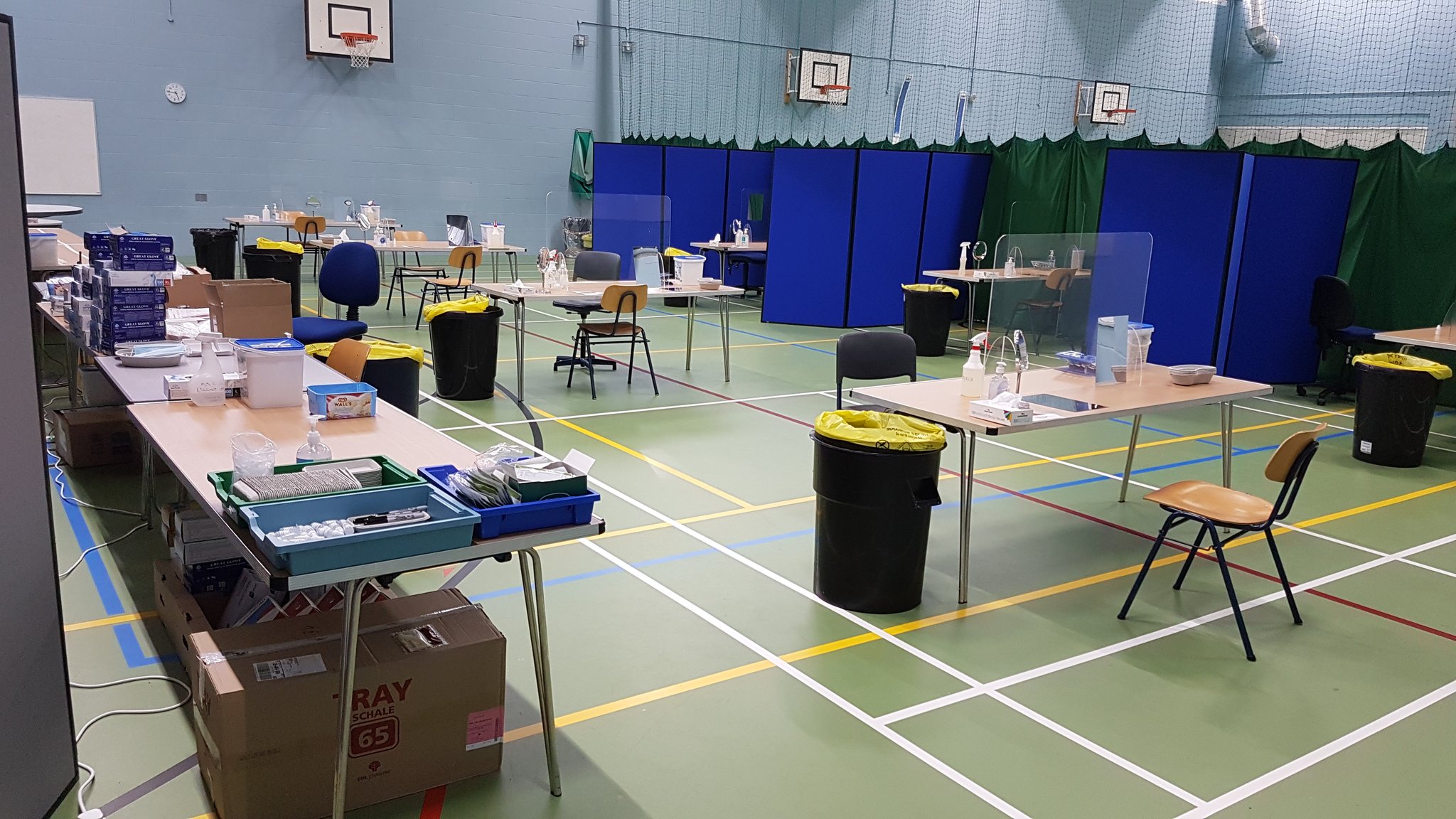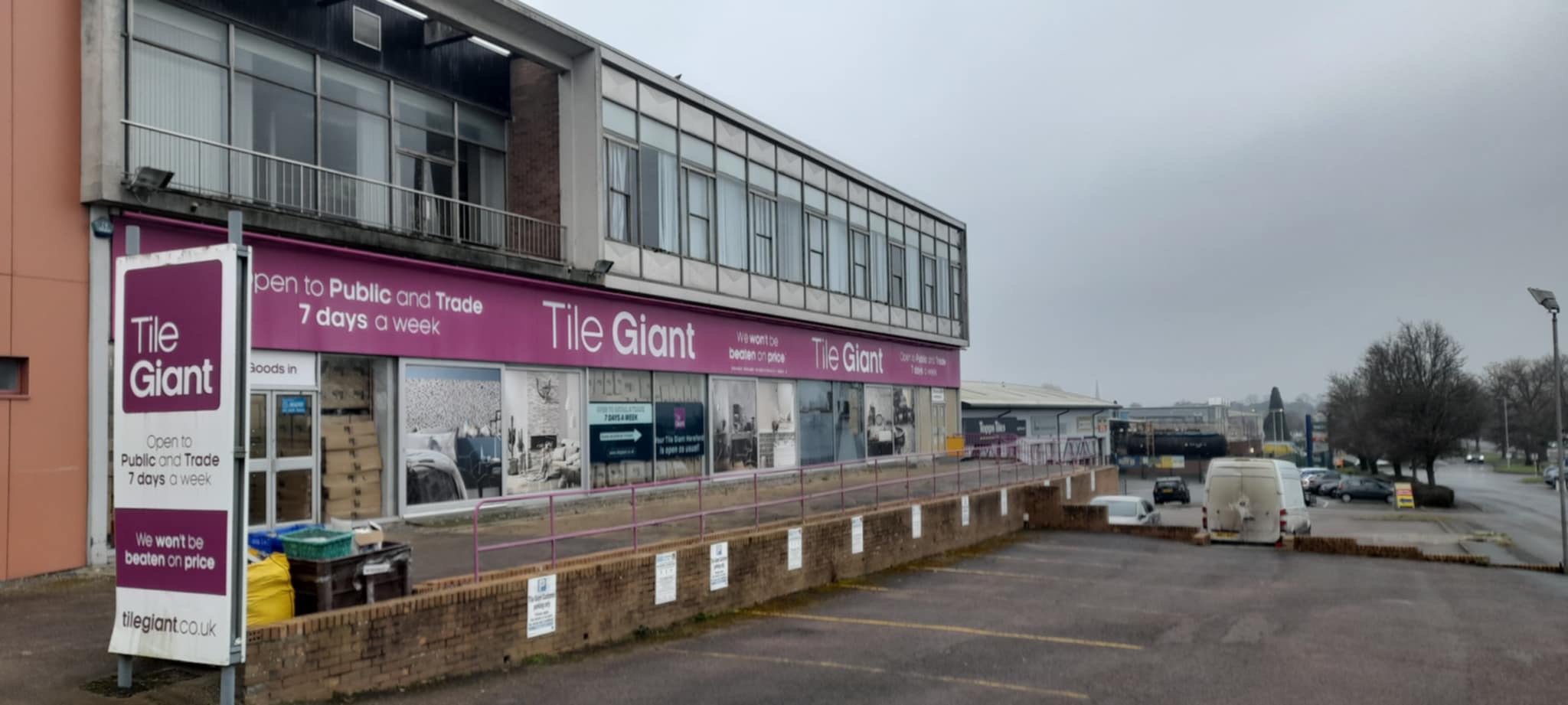One thing that has impressed the team here at Your Herefordshire is the professionalism of our local schools. Despite many challenges and changes to the way that students are taught, you never see them moan and whenever approached by us for information, they always respond in a timely manner. It is much appreciated and goes to show just how amazing our local educational settings are.
Children will return to school for face to face teaching from Monday and secondary schools across the county have been busy getting COVID-19 testing areas ready.
Tim Knapp (Headteacher at Whitecross Hereford High School) said:
“After 8 weeks of remote learning we can’t wait to get students back into school next week. We think we’re ready! To our parents, students, staff, volunteers, trustees – thank you. You make this great community what it is.”
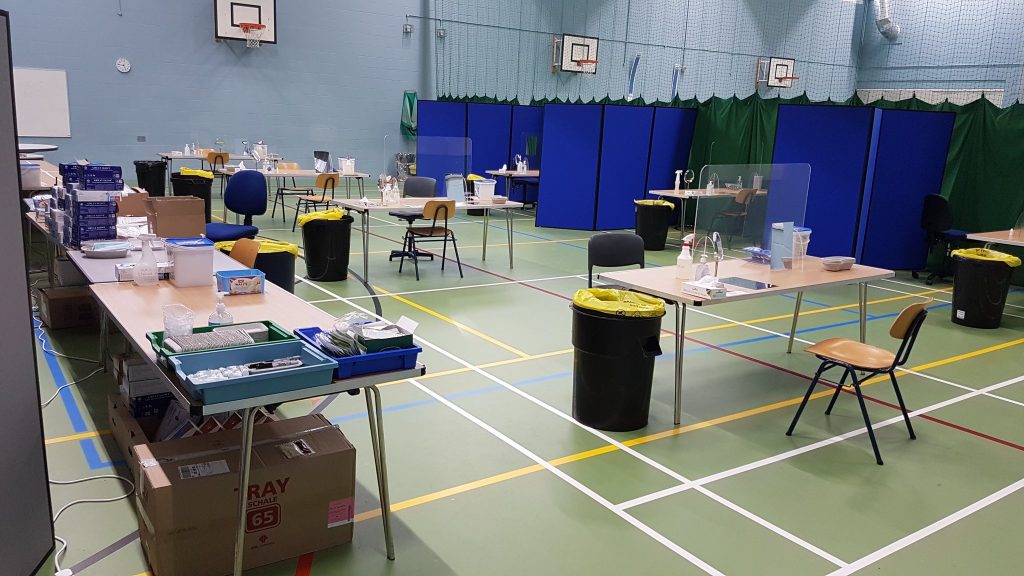
Susan Bielska who’s daughter attends Whitecross Hereford High School said:
“Whitecross, you have all been amazing. No loss of momentum. No lack of communication. You guys have nailed this. Your teachers are exceptional and as a leader, you rock. So pleased my daughter is a student here.”
Paul Smith (Headmaster at Hereford Cathedral School) said:
“The HCS Sports Hall is set up ready for testing, which starts tomorrow. Pupils in Years 7 to 13 will visit school over the weekend for their first lateral flow tests before we get back in the classroom on Monday. Many thanks to all the staff involved in this huge effort.”
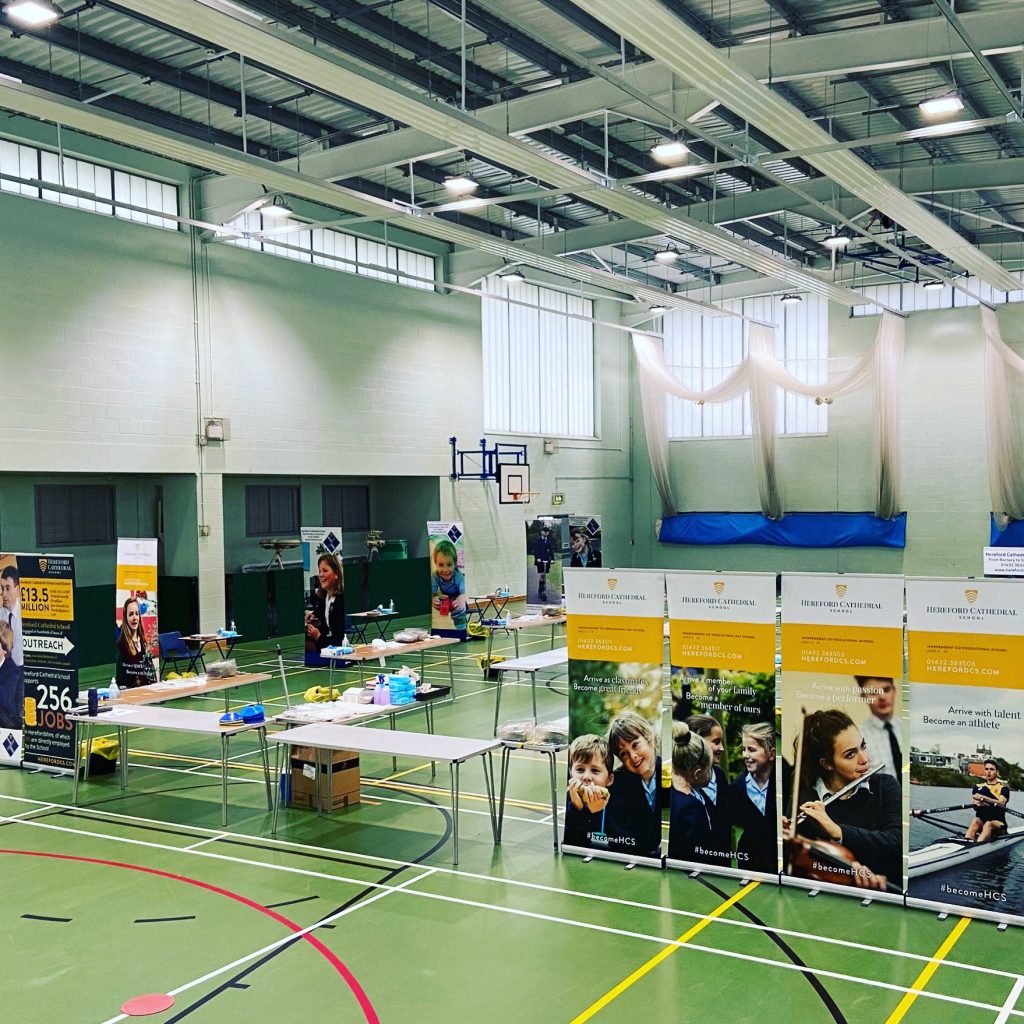
Simon Robertson (Executive Headteacher at Aylestone School) said:
“We’re really looking forward to welcoming the children back from Monday 8th March. The children were brilliant in adapting to the new procedures that were introduced when schools fully returned after the first lockdown in September.
“I’m sure they’ll approach the additional measures that the Government have asked schools to implement on this occasion in the same way with the same maturity. It’s certainly a logistical challenge for schools to test every student 3 times in school in a short space of time and each school will have their own difficulties to overcome.
“When the children return they will be asked to complete their first Covid-19 lateral flow test. Testing is voluntary, but strongly encouraged.
“We have been testing staff and students in school for some time now and our procedures are well established. I was apprehensive and nervous when I took my first test, but is something that I’m now used to and has become part of my weekly routine.
“The test will be done in a private testing booth and there will be lots of staff around to guide students in completing the test and to offer support and reassurance. The results from the test take roughly 30 minutes and once a child’s test result is confirmed as negative they can return to school full time. The children will complete two further tests in school (3 – 5 days apart) to gain confidence in the procedure before we give them a testing kit for them to use at home.
“When the children return to school it’s certainly going to be a busy time for everyone, but worthwhile for us to be able to welcome everyone back.”
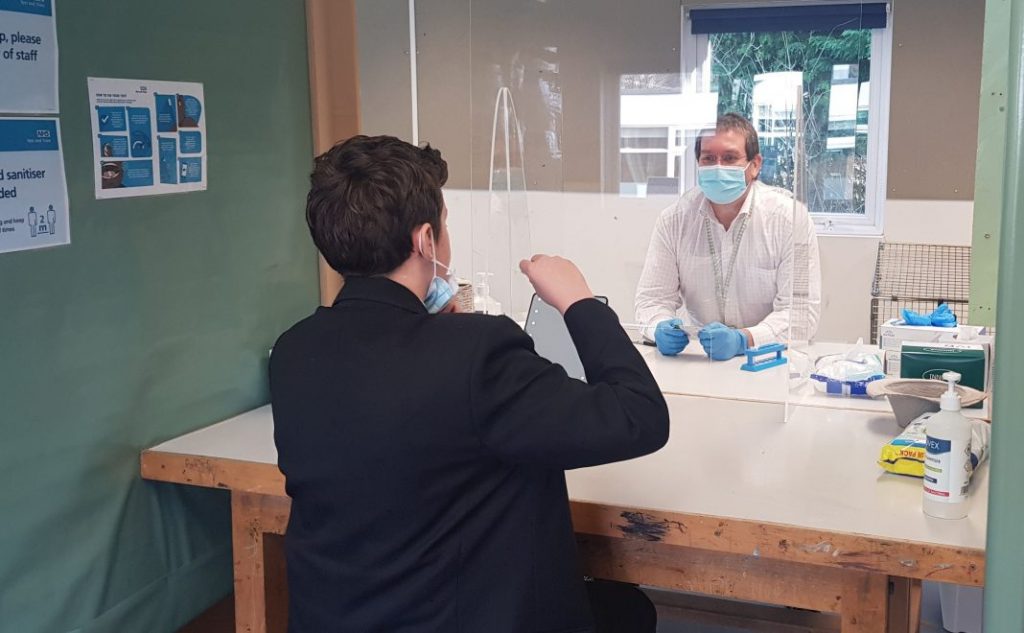
From The Government:
All households with children of school age to get 2 rapid COVID-19 tests per person per week
Testing will continue to be a vital part of our response to coronavirus (COVID-19), supporting the roadmap set out by the Prime Minister earlier this week. As we cautiously ease restrictions in England, starting with the return of schools and moving towards more social mixing at the end of March, we need to be sure that each COVID-19 case is found as quickly and as easily as possible. Although cases are declining, everyone needs to play their part to keep the virus under control while keeping children and young people in school.
As laid out in the roadmap, secondary school and college students will now be tested twice a week, receiving three initial tests at school or college before transitioning to twice weekly home testing. Primary school children will not be regularly asymptomatically tested due to low levels of transmission between younger aged children but will continue to need to come forward for tests if they have symptoms.
In addition to this, the government has confirmed twice-weekly testing using rapid lateral flow tests will be given for free to all families and households with primary, secondary school and college aged children and young people, including childcare and support bubbles, to help find more COVID-19 cases and break chains of transmission. Twice-weekly testing will also be offered to adults working in the wider school community, including bus drivers and after school club leaders.
With about a third of individuals with coronavirus showing no symptoms and potentially spreading it without knowing, targeted, regular testing will mean more positive cases within households are found and prevented from entering schools and colleges, helping to keep educational settings safe.
Rapid testing detects cases quickly – in under 30 minutes – meaning positive cases can isolate immediately. This can be the difference between children being able to stay in school, or a class being sent home due to an outbreak. It could also be the difference between a workplace having to close for a period, or being able to stay open and running.
Health and Social Care Secretary Matt Hancock said:
Regular testing of households and childcare support bubbles of primary and secondary school children is another tool we are making available to help keep schools safe. We know that 1 in 3 people with COVID-19 don’t have any symptoms, so targeted, regular testing will mean more positive cases are kept out of schools and colleges.
As we continue to roll out the vaccine, testing offers us a way forward. Sustained and repeated testing for people without symptoms has a critical role to play as sections of society are reopened by driving down transmission rates.
By everyone playing their part and getting tested regularly, vital public services, workplaces and educational settings can stay open and running, and we can move closer to a more normal way of life.
Education Secretary Gavin Williamson said:
We are getting all children back in the classroom from 8 March, because it will bring huge benefits to their education and wellbeing, and is a hugely important step in helping them recover from the impact of the pandemic.
Testing family members will provide yet another layer of reassurance to parents and education staff that schools are as safe as possible, building on the massive increase in testing for secondary school and college students, and strengthened requirements around face coverings in areas where social distancing cannot be maintained.
Professor Yvonne Doyle, Medical Director at Public Health England, said:
These rapid tests help uncover hidden cases of the virus and break chains of transmission, stopping outbreaks before they occur.
Combined with other protective measures, they are a vital tool to help us lower infection rates and ensure that they stay low.
I would encourage all eligible households to take up the offer of twice weekly rapid testing – it’s quick and painless and could help save lives.
All households with primary and secondary school and college age children, and childcare and support bubbles, will be encouraged to start regular twice-weekly testing as schools return. Tests will be available for adults in these households to collect on 1 March. As with student testing, this is encouraged but not mandatory. A secondary PCR test will be required for positive lateral flow tests which are taken at home, either through at home PCR testing or at a local PCR testing site.
Getting a rapid test is quick and convenient. The expanded regular testing offer for people without symptoms will be delivered through:
- testing in-person via workplace testing
- local authority test sites
- collection at a local PCR test site during specific test collection time windows
- a new home ordering service, which once launched on 1 March will allow people to order lateral flow tests online to be delivered to their home
The expansion of asymptomatic testing is already well underway for those who need to leave home for work. Workplace testing has already scaled up, with both private and public sector employers signed up to provide rapid testing at asymptomatic testing sites, along with a self-test option for those that cannot access a workplace testing site. This includes the UK’s largest employer – the NHS, adult social care, education staff and a wide range of other sectors.
All local authorities in England have now enrolled in the community testing programme. As a partnership between national and local government, community testing offers asymptomatic testing for local public services, small businesses, self-employed people and communities that have been disproportionately affected by the virus.
Testing in education settings is now well established, with 600,000 tests done at universities since last year and more than three million rapid COVID-19 tests conducted in schools and colleges in England since 4 January, including tests for those students who have already returned and regular testing for all staff.
Rapid, regular testing for new groups is one of a range of new measures designed to minimise the spread of COVID-19 and support the successful return of more learners to face-to-face education and childcare settings. Testing is an additional tool, working in conjunction with other protective measures that are in place in schools to help protect staff and students including social distancing, handwashing and face covering. Schools and colleges will not be expected to provide the test kits to families or administer the family testing process.
Anyone with symptoms of COVID-19 should book a test online or by calling 119.
Contains public sector information licensed under the Open Government Licence v3.0.

